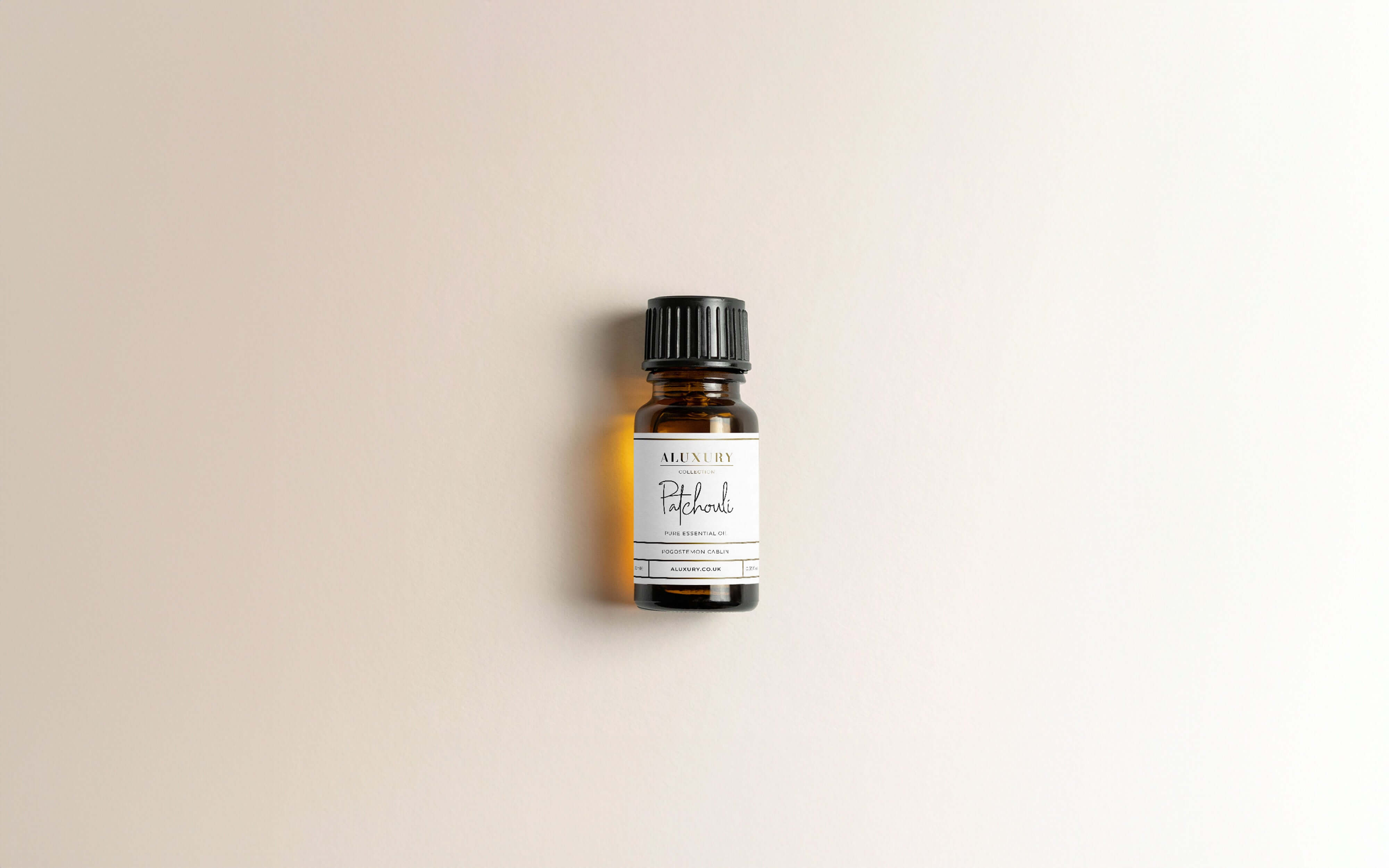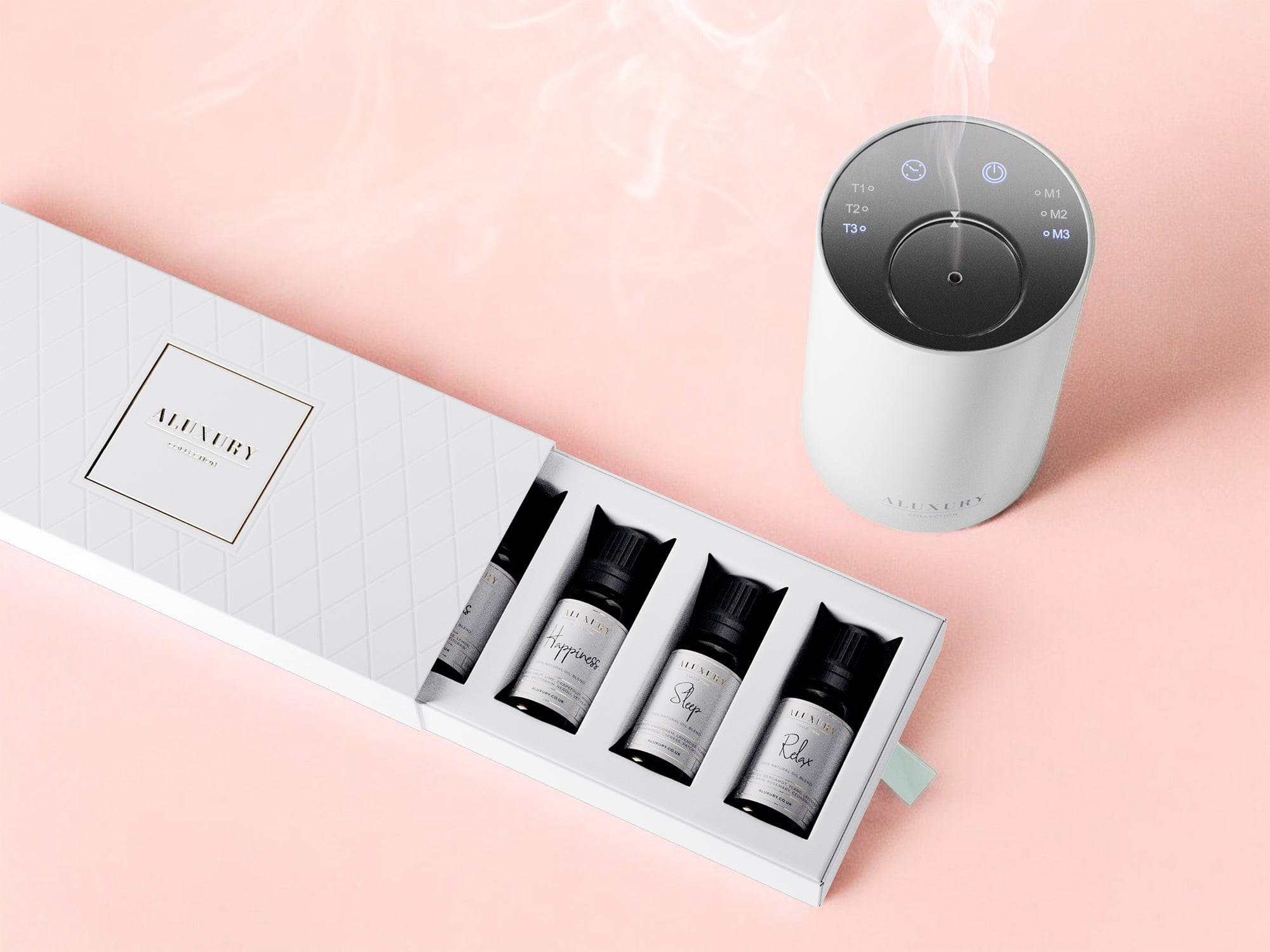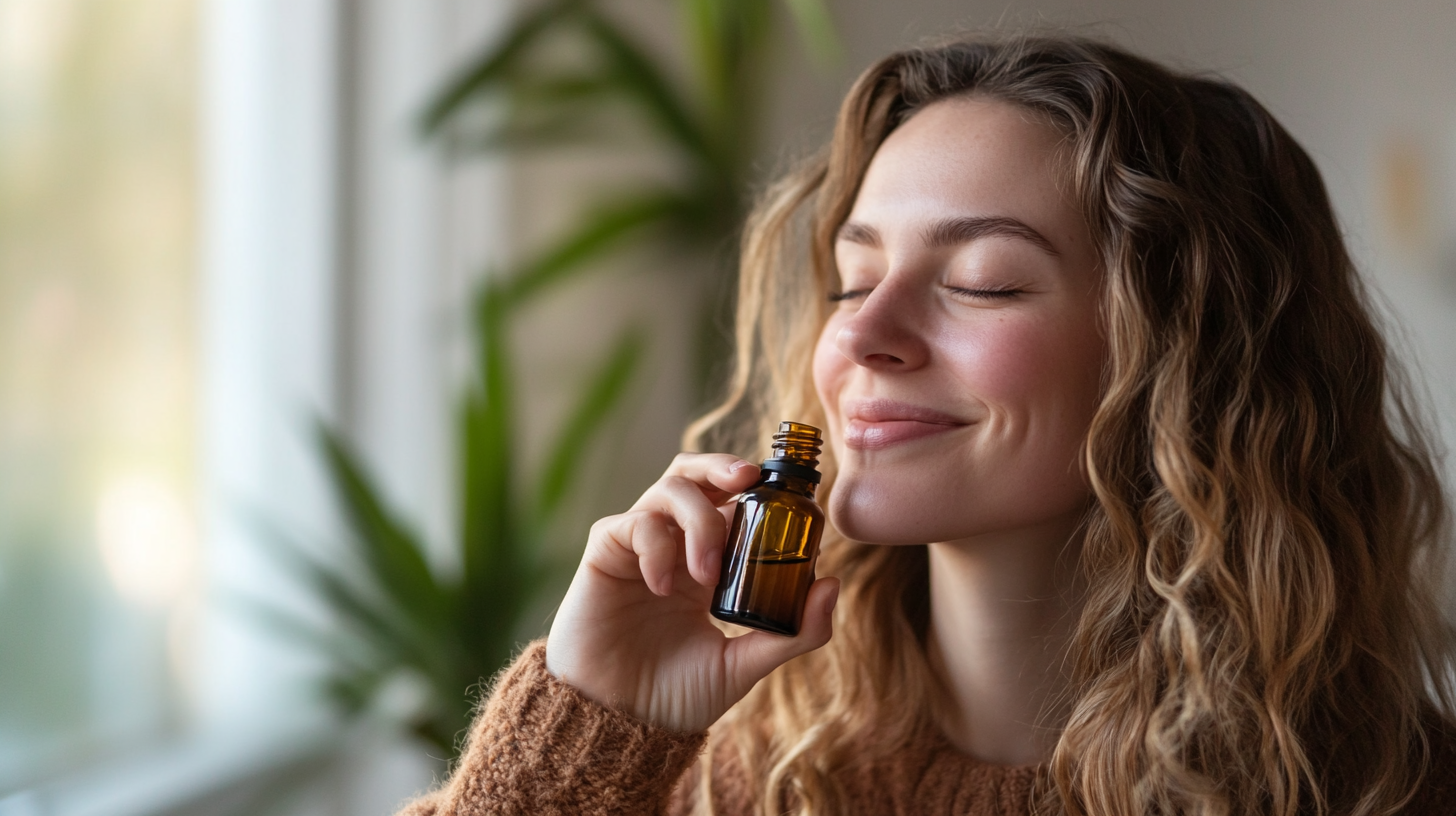Essential oils have become a cornerstone of modern wellness routines, with many people using them in diffusers, skincare products, and even exploring methods of ingestion. But are essential oils safe, and do their benefits outweigh any potential risks?
In this article, we will delve into how these potent plant extracts work, discuss their common uses, and offer best-practice guidelines to ensure you enjoy them responsibly. If you have ever asked yourself, are diffusers safe or is diffusing essential oils safe for your lungs, read on for a thorough explanation.
Introduction: The Rising Popularity of Essential Oils
The global wellness industry has seen a surge in the popularity of essential oils in recent years, with many individuals seeking natural alternatives for relaxation, stress relief, and personal care.
Aromatherapy—using the fragrance of these oils to influence mood and well-being—has particularly captured public interest. From lavender oil touted for its calming properties to tea tree oil used in skincare, the options seem endless.
However, essential oils are highly concentrated substances, and questions regarding their safety and potential side effects have emerged.
This article aims to provide a balanced look at how essential oils are used, what to consider when diffusing them, and whether it is advisable to ingest these potent extracts. By the end, you will have a clear understanding of best practices to keep your aromatherapy experience both pleasant and safe.
What Are Essential Oils?
Essential oils are concentrated plant extracts derived from various parts of plants such as leaves, flowers, bark, or roots. They capture the natural aroma and therapeutic compounds that give each oil its unique characteristics.
Popular extraction methods include steam distillation and cold pressing, ensuring that the volatile compounds—responsible for both scent and potential therapeutic effects—remain intact.
Common Uses of Essential Oils
-
Aromatherapy: Adding a few drops to a diffuser or inhaler for relaxation, mood enhancement, or sinus relief.
-
Topical Application: Blending with a carrier oil (e.g. coconut or almond oil) to create massage oils, skincare products, or soothing balms.
-
Household and Cleaning: Employing certain oils with antibacterial properties (such as tea tree or eucalyptus) in homemade cleaning solutions.
It is easy to see why many are drawn to essential oils’ convenience and versatility. However, with higher demand comes greater responsibility. Ensuring that you understand each oil’s potency and recommended usage methods is crucial for anyone incorporating them into daily life.
Are Essential Oils Safe? Key Considerations
While essential oils can offer a range of benefits, from relieving stress to freshening the home, their safety hinges on proper usage. Several factors will influence how safe essential oils are for you, including your health status, age, and the method of use.
1. Quality and Purity
Not all essential oils are created equally. Some may be adulterated or mixed with synthetic fragrances, which can pose additional risks. Always look for oils labelled as 100% pure essential oil from reputable brands or suppliers.
In the United Kingdom, certifications from bodies such as the Soil Association or membership in professional organisations (e.g., National Association for Holistic Aromatherapy or Aromatherapy Trade Council) can indicate a higher standard of quality control.

2. Concentration and Dosage
Essential oils are incredibly potent. A drop or two is often more than enough for most uses, whether adding them to a diffuser or mixing with a carrier oil. Going beyond recommended dosage levels can increase the likelihood of adverse effects, such as skin irritation, headaches, or respiratory issues. If the recommended concentration on the bottle is unclear, consult a trained aromatherapist or reputable online resource.
3. Personal Sensitivity and Allergies
Even the purest essential oils can trigger allergic reactions in sensitive individuals. A patch test—applying a small, diluted amount to a discrete area of skin—will help determine how your body responds before widespread use. Those with asthma or respiratory conditions should exercise caution when inhaling or diffusing essential oils, as certain aromas may aggravate symptoms.
Inhalation and Diffusion: Are Diffusers Safe?
One of the most popular methods of using essential oils involves diffusing them into the air. This approach can create a soothing atmosphere, eliminate unpleasant odours, or promote relaxation before bedtime. But are oil diffusers safe, and is diffusing essential oils safe for your lungs?
Potential Benefits of Diffusing Oils
-
Mood Enhancement: Scents like lavender or bergamot can help reduce stress and encourage calm.
-
Easy Application: Diffusion allows the aroma to permeate a room without having to apply oil to the skin.
-
Reduced Direct Contact: Inhaling through the air (when done responsibly) may minimise the chance of skin reactions compared to direct application.
Possible Risks and Precautions
-
Respiratory Sensitivity: If you or a family member has respiratory issues, strong scents or prolonged exposure can exacerbate breathing problems. It is wise to maintain good ventilation and limit the diffuser’s usage time to a few hours at most.
-
Over-Diffusion: More is not always better. A few drops will often suffice; adding excessive amounts can result in overpowering scents and potential irritation.
-
Infants and Pets: Certain essential oils may not be safe around young children or animals. For example, tea tree oil and eucalyptus oil can be toxic for pets if inhaled in large quantities or accidentally ingested.
In short, are essential oils safe in diffusers? Generally, yes—provided you use high-quality oils, keep the area well-ventilated, and avoid prolonged or excessive diffusion.
Ingestion: Can You Ingest Essential Oils?
The question of ingesting essential oils is highly debated. Many health experts advise against consuming essential oils (i.e., can you eat essential oils or can you consume essential oils) unless under the direct supervision of a qualified professional. Here’s why:
-
High Potency: A small amount of essential oil can deliver a considerable dose of active compounds. While this is beneficial for aromatherapy, ingestion amplifies the concentration in your body, raising the risk of toxicity or chemical burns.
-
Limited Regulation: Unlike food products, essential oils are not universally regulated to ensure ingestion safety. Even if an oil is labelled as “food-grade,” it must be treated cautiously.
-
Potential Interactions: If you take medications or have underlying health conditions, ingesting essential oils could lead to harmful interactions.
Can you consume essential oils safely? Some professional aromatherapists or herbalists may incorporate specific oils into specialised protocols. However, this is generally done in extremely low doses and with thorough knowledge of each oil’s chemical profile. For the average person, ingestion is not recommended without medical guidance.
Topical Application: Skin Safety
Another common question relates to applying essential oils directly onto the skin. While topical use can be beneficial for issues like muscle tension or skincare, it is important to dilute essential oils with a carrier oil (e.g., jojoba, almond, or coconut).
Tips for Safe Topical Use
-
Perform a Patch Test: Apply a small amount of the diluted mixture to an inconspicuous area such as your inner forearm. Wait 24 hours to check for any adverse reactions (e.g., redness, itching, or swelling).
-
Follow Recommended Dilution Ratios: Typical dilution is 1–2% for general use. This equates to around 1–2 drops of essential oil per teaspoon of carrier oil.
-
Avoid Sensitive Areas: Refrain from applying essential oils near your eyes, inside your ears, or on broken or irritated skin.

Potential Side Effects and Precautions
Even with proper use, essential oils may not be suitable for everyone. Common side effects include skin irritation, headaches, dizziness, or respiratory discomfort, especially if used in higher concentrations.
Special Populations
-
Pregnant and Breastfeeding Women: Some essential oils, including rosemary and sage, contain compounds that may not be advisable during pregnancy. Always consult a healthcare provider before using any new products.
-
Children: Paediatric experts often recommend extreme caution when using essential oils around young children due to the risk of accidental ingestion or extreme sensitivity to strong scents.
-
Pets: Cats and dogs metabolise certain compounds differently from humans. Oils such as tea tree, peppermint, and citrus can be harmful to pets. Consult your vet if you plan to diffuse or apply oils around animals.
Guidelines for Safe Use of Essential Oils
To make the most of essential oils while minimising risks, follow these practical tips:
-
Buy from Reputable Brands: Look for labels that confirm 100% pure essential oil and check for third-party testing or certification.
-
Store Properly: Keep essential oils in dark, glass bottles away from heat and direct sunlight to preserve their potency.
-
Use a Carrier Oil for Skin Application: Always dilute essential oils before applying them to avoid irritation.
-
Diffuse Responsibly: Ensure adequate ventilation, set time limits on diffusion, and use only a few drops to prevent overwhelming scents.
-
Monitor for Reactions: Discontinue use if you experience itching, rashes, headaches, or difficulty breathing.
-
Seek Professional Advice: If you are pregnant, have a chronic health condition, or are considering ingestion, consult a qualified aromatherapist or healthcare provider first.
Conclusion
Essential oils can be valuable tools for relaxation, household use, and personal care—but safety should always be your top priority.
Understanding the potency of these aromatic extracts, choosing high-quality products, and following guidelines for proper use will help you avoid unnecessary risks. Inhaling essential oils through a diffuser or applying them topically in diluted form can be both pleasant and beneficial, provided you approach them with an informed mindset.
For those wondering, are essential oils safe in diffusers? Yes, they generally are—if you maintain good ventilation, avoid overuse, and pay attention to any respiratory sensitivities. And as for ingestion, the short answer is that it is usually best left to the experts. Most people will benefit from safer, more conventional methods like inhalation and topical application.
Following these precautions and staying aware of your body’s responses, you can incorporate essential oils into your lifestyle with confidence. The key is moderation, respect for each oil’s potency, and the willingness to consult professionals when in doubt.






Share: